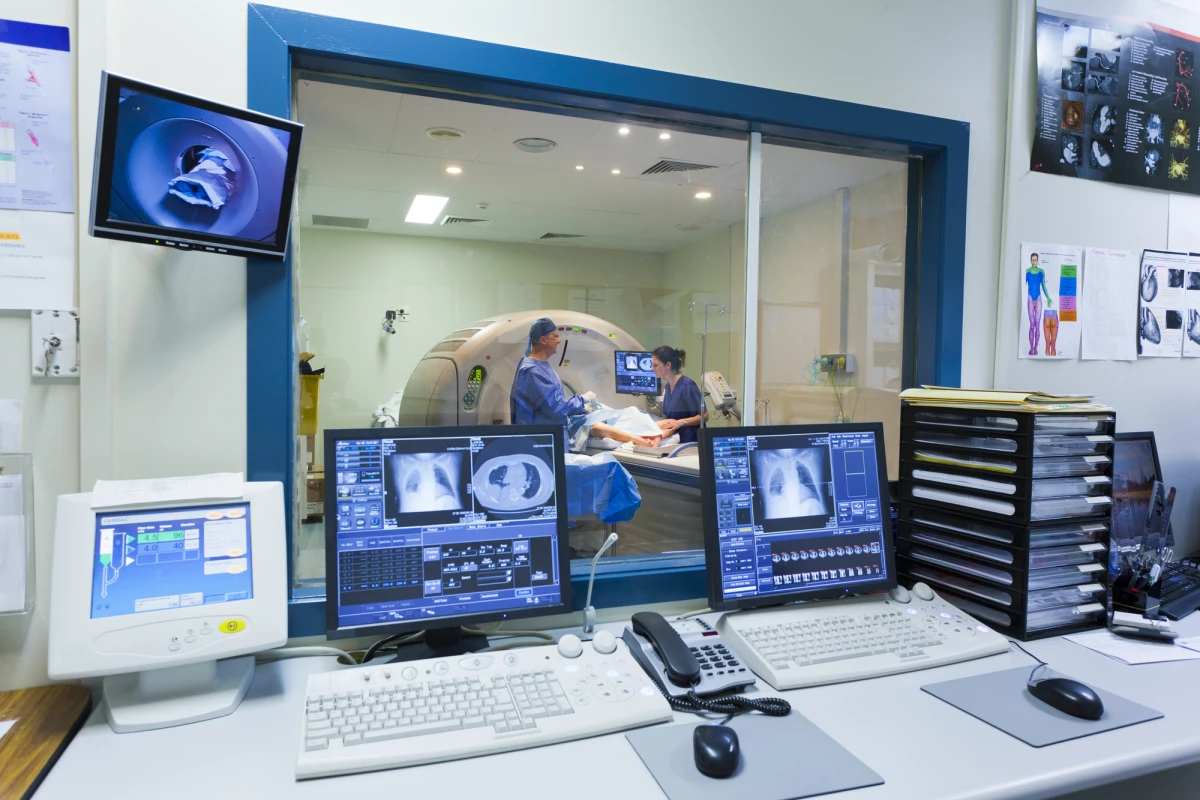A newly published study has validated the efficacy of a novel AI algorithm designed to deliver accurate MRI results from four times less data than usually necessary. This impressive innovation promises to dramatically speed up MRI scans without needing to upgrade pre-existing imaging hardware.
Two years ago a team of radiologists from the New York University Grossman School of Medicine joined forces with Facebook's Artificial Intelligence Research (FAIR) group to try and develop a neural network that can produce effective MRI scans from as little data as possible.
Current MRI scans, one of the best and safest diagnostic tools available to doctors, are time-consuming and claustrophobic experiences. Depending on the target, a scan can take up to an hour to complete and such extensive durations limit the volume of patients a single machine can scan each day.
The collaborative project, called fastMRI, produced an AI model that can generate detailed MRI images from a quarter of the data traditionally needed. However, as outlined in a blog post penned by the Facebook AI team, creating accurate MRI images was only the first step for the researchers.
“Generating an accurate image isn’t the only challenge,” the Facebook team writes. “The AI model must also create images that are visually indistinguishable from traditional MRI images. Radiologists spend many hours carefully analyzing these images and an unfamiliar look and feel could make radiologists less likely to adopt fastMRI in their practices.”
So to test how interchangeable the AI-generated MRI images are with traditional MRI images, six independent musculoskeletal radiologists were recruited for a novel study. Two separate datasets were created from 108 test patients, and each patient had their knee scanned using both the new AI model and standard MRI imaging.
The expert radiologists then blindly evaluated both datasets, with the results suggesting the two kinds of imaging modalities were essentially indistinguishable from each other. The diagnoses delivered by the radiologists were the same, regardless of whether they were evaluating traditional MRI images or the newer AI-assisted images. In fact, the study notes the radiologists rated the overall quality of the AI images as better than the traditional MRI images.
“This study is an important step toward clinical acceptance and utilization of AI-accelerated MRI scans because it demonstrates for the first time that AI-generated images are essentially indistinguishable in appearance from standard clinical MRI exams and are interchangeable in regards to diagnostic accuracy,” says lead author on the new study, Michael Recht. “This marks an exciting paradigm shift in how we are able to improve the patient experience and create images.”
The results produced by the fastMRI project are open source, so the research team is hoping MRI hardware vendors can begin rapidly incorporating the new algorithms into their products. The innovation should also be easily incorporated over the next few years into pre-existing MRI hardware currently in hospitals, making patient experiences more comfortable while expanding MRI access to a greater number of people.
The new study was published in the American Journal of Roentgenology.
Sources: NYU Langone, Facebook AI




